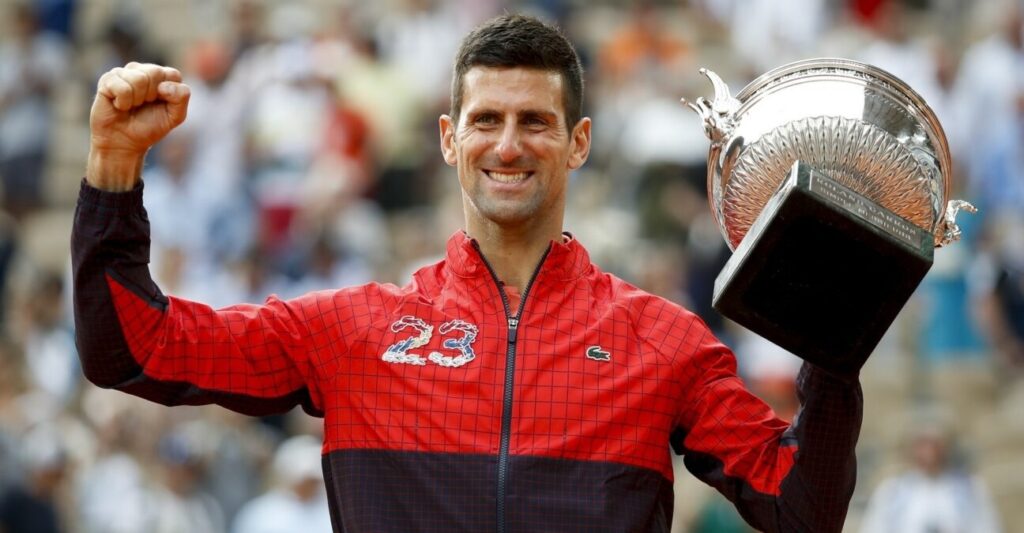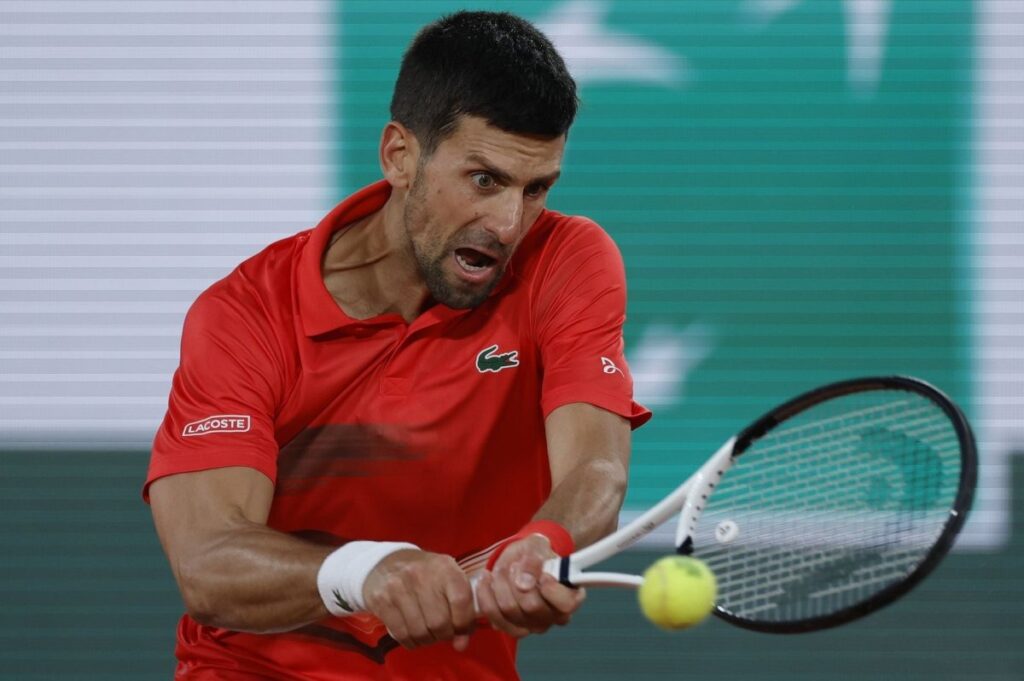
Determining the greatest of all time cannot be solely based on a simple tally of grand slam titles.
With Novak Djokovic clinching his 23rd grand slam tennis tournament, surpassing Rafael Nadal, there is growing sentiment that he may be considered the greatest of all time. However, many individuals hesitate to fully embrace this notion, as they believe Roger Federer is equally deserving of the title.
But can numbers alone provide an accurate representation? Not necessarily.
Let’s consider a hypothetical scenario: Imagine a tennis player who stands at a towering height of 10 feet. Every serve they make results in an ace, and they never lose a service game. This extraordinary player goes on to win a staggering 30 grand slam titles. Would they be considered the GOAT? No, such an idea is absurd.
This example highlights that greatness in tennis cannot be determined solely by statistics, as there are various other factors to consider beyond sheer numbers
Let’s consider another scenario: Imagine a future where a global conflict ensues, leading to the conscription of the majority of young men. Despite the upheaval, the grand slam tournaments continue to take place, and an individual named Dave manages to secure an impressive 30 victories. Does this make Dave the greatest of all time? Absolutely not.

This example demonstrates that external circumstances and the absence of top competitors can distort the perception of greatness. Merely accumulating grand slam titles in such a scenario does not necessarily equate to being the greatest player in the history of the sport.
When discussing who is the greatest of all time, it is important to acknowledge that a simple summation of grand slam victories cannot provide a definitive answer. Other factors such as the competition and physical advantages must be taken into account.
Let’s delve into these considerations. Since 2019, Djokovic has secured eight grand slam titles. However, it is worth noting that during this period, Federer was dealing with age-related challenges and injuries, resulting in suboptimal performance, while the overall level of competition was relatively weak. This doesn’t diminish the value of Djokovic’s achievements, but it does lessen their significance.
Another aspect to consider is physical advantages. Although Djokovic may not stand at an extraordinary height, his exceptional speed and flexibility have earned him the moniker “the rubber man.” These physical attributes provide him with a substantial advantage, allowing him to prolong points and wear down his opponents. His skills as a returner, defender, and strategic player who tactically moves his opponents around the court are integral to his greatness. However, it is important to recognize that his physical advantages also diminish the magnitude of his accomplishments.
One might argue that Djokovic holds a superior head-to-head record against Federer. However, this comparison is irrelevant since they peaked at different times. Federer’s prime spanned from 2004 to 2009, while Djokovic reached his peak between 2011 and 2016.
Furthermore, attempting to determine the greatest of all time based on hypothetical matchups is flawed. Each player’s game style interacts differently with their opponents. It is plausible that Federer at his peak would defeat Djokovic at his peak, who, in turn, would defeat Nadal at his peak. Conversely, it could also be true that Nadal would overcome Federer. It is even possible that Kyrgios, at his peak, could triumph over any of these players, yet this does not automatically make him the greatest of all time.

In considering the greatest tennis player of all time, if we can even define such a concept, it is essential to evaluate who, at their peak, would consistently outperform the other notable players at their peaks, across different playing surfaces. A significant determinant in this assessment is the players’ mentality. “The big three” (Federer, Djokovic, and Nadal) share a common attribute of excelling in crucial points and maintaining mental resilience. Ultimately, the distinction of the greatest player may hinge on this crucial factor: mental toughness. However, determining who possesses the greatest mental strength remains uncertain






